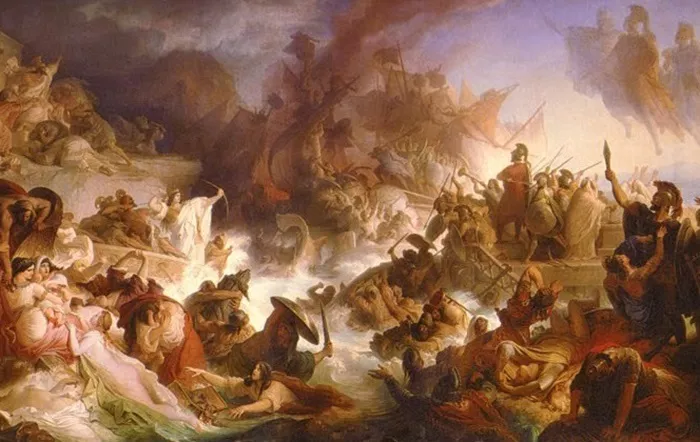Why Is It Called Epic
 Chris Johnson
Chris Johnson
An epicis a lengthy narrative poem that often recounts the extraordinary deeds of heroes, intertwining their adventures with the divine or supernatural. These poems have been integral to various cultures, serving as both entertainment and a means to convey moral lessons and cultural values.
Etymology: The Origin of “Epic”
The term “epic” originates from the Ancient Greek word “ἔπος” (epos), which means “word,” “story,” or “poem.” This evolved into the adjective “ἐπικός” (epikos), relating to poetic stories, and was later adopted into Latin as “epicus.” Over time, it entered the English language as “epic,” retaining its association with grand poetic narratives.
Characteristics of Epic Poetry
Epic poetry is distinguished by several key features:
Lengthy Narratives: Epics are extensive, often comprising thousands of lines.
Heroic Protagonists: Central figures are typically heroes of great significance, embodying the ideals of their culture.
Supernatural Elements: Interactions with gods, monsters, or other supernatural entities are common.
Elevated Style: The language used is formal and grandiose, befitting the subject matter.
Cultural Significance: Epics often encapsulate the values, history, and beliefs of the culture from which they originate.
Historical Context and Examples
Epic poetry has roots in ancient oral traditions, predating written literature. These poems were recited or sung, making them accessible to audiences regardless of literacy.
The Epic of Gilgamesh
One of the earliest known epics is the “Epic of Gilgamesh” from ancient Mesopotamia. This poem chronicles the adventures of King Gilgamesh and explores themes of friendship, mortality, and the quest for immortality.
Homer‘s Iliad and Odyssey
In ancient Greece, Homer’s “Iliad” and “Odyssey” stand as monumental works. The “Iliad” details the events of the Trojan War, focusing on the hero Achilles, while the “Odyssey” follows Odysseus’s perilous journey home after the war.
Virgil’s Aeneid
The Roman poet Virgil composed the “Aeneid,” which tells the story of Aeneas, a Trojan hero who becomes an ancestor of the Romans. This epic serves to link Roman history with the legendary narratives of Troy.
Evolution of the Epic Form
Over time, the epic form has evolved, adapting to different cultures and literary styles. While traditional epics were composed in poetic form, the essence of the epic narrative has been preserved in various formats.
Literary Epics
With the advent of writing, many oral traditions were transcribed, and new epics were composed in written form. These literary epics maintained the grandeur and thematic depth of their oral predecessors. For instance, Dante’s “Divine Comedy” and John Milton’s “Paradise Lost” are considered literary epics that explore profound spiritual and philosophical themes.
Modern Adaptations
In contemporary times, the term “epic” has been applied beyond poetry to describe novels, films, and other media that exhibit grand scope and heroic themes. For example, J.R.R. Tolkien’s “The Lord of the Rings” trilogy is often referred to as an epic due to its expansive narrative and richly developed world.
The Enduring Appeal of Epics
The enduring appeal of epics lies in their ability to convey universal themes such as heroism, adventure, and the human condition. They serve as cultural touchstones, preserving the histories and values of societies. Moreover, the larger-than-life characters and their journeys resonate with audiences, offering both entertainment and insight into the complexities of life.
Conclusion
The term “epic” has its roots in ancient language, evolving to describe grand narratives that have captivated audiences for millennia. From the oral traditions of the “Epic of Gilgamesh” to modern cinematic masterpieces, epics continue to be a testament to humanity’s enduring love for storytelling and the exploration of our greatest hopes, fears, and aspirations.
Subscribe to my newsletter
Read articles from Chris Johnson directly inside your inbox. Subscribe to the newsletter, and don't miss out.
Written by

Chris Johnson
Chris Johnson
Chris Johnson is the founder of NevermorePoem.com, a platform designed to deepen the appreciation of poetry in all its forms. With a passion for literature and a keen interest in the global history of poetry, Chris created the website to help people better understand the structure, style, and cultural significance of poems from different countries. His vision is to make poetry accessible and relatable, bridging the gap between readers and the works of renowned poets from various periods. Through his platform, Chris aims to inspire a new generation of poetry lovers and scholars around the world.